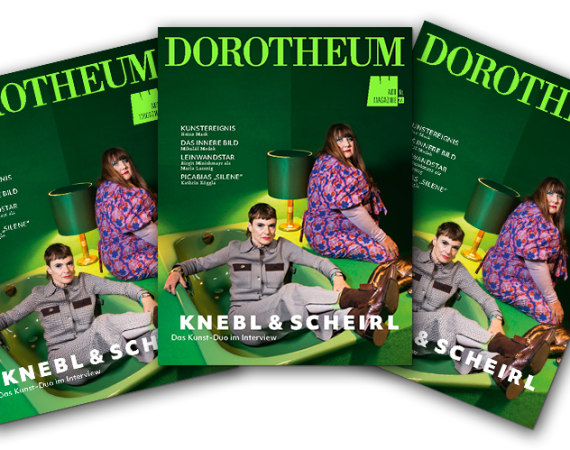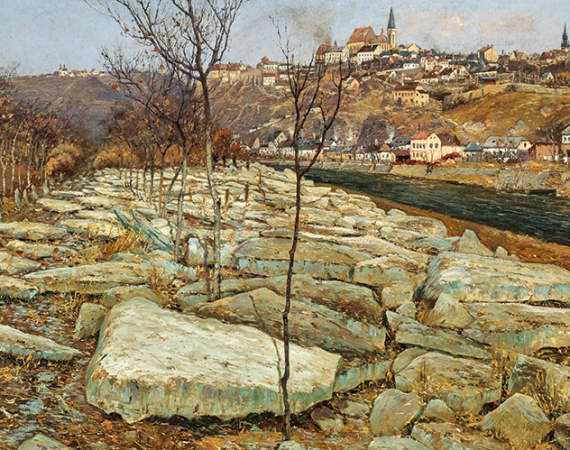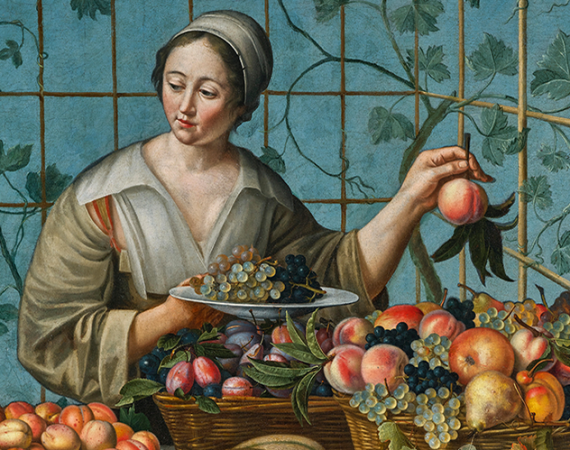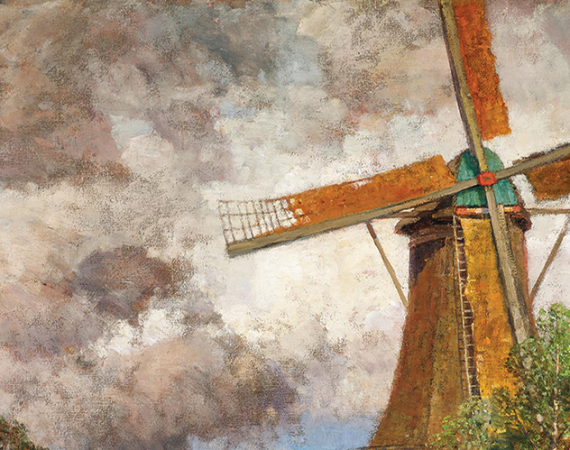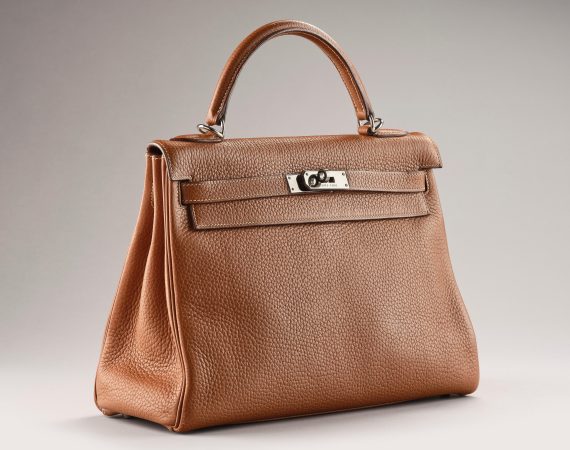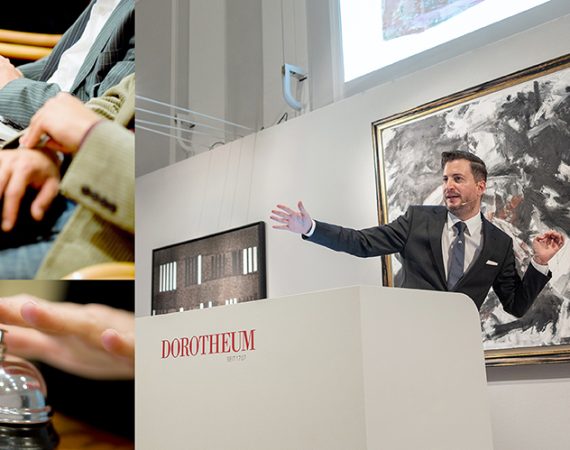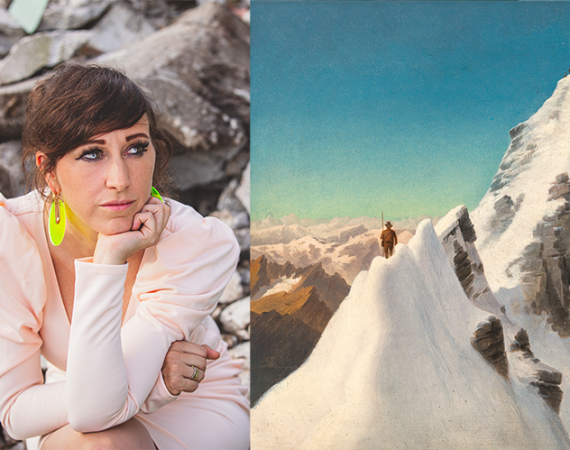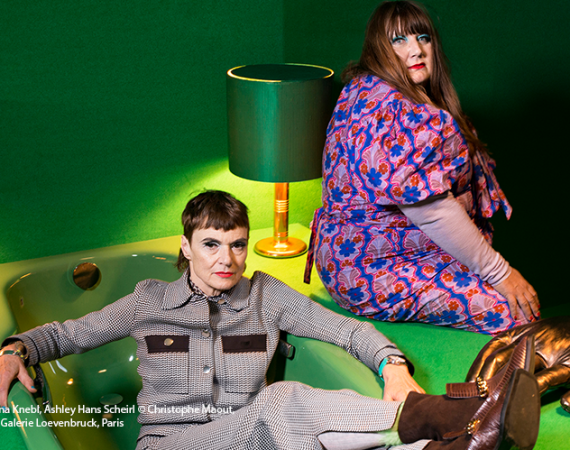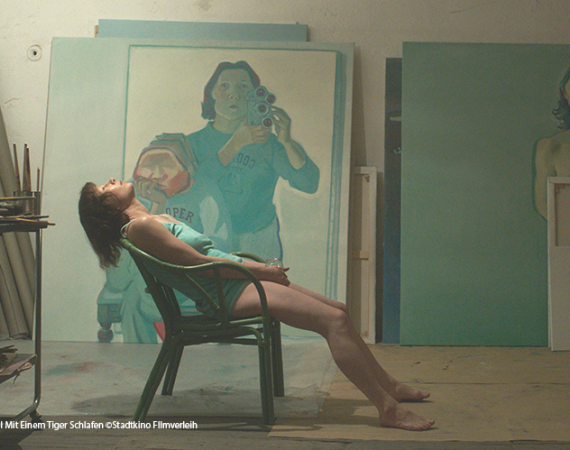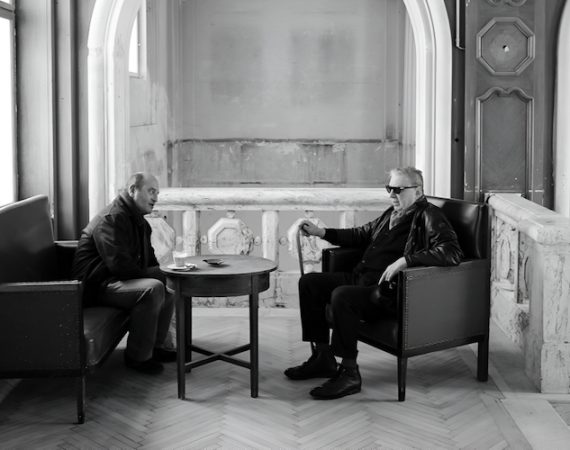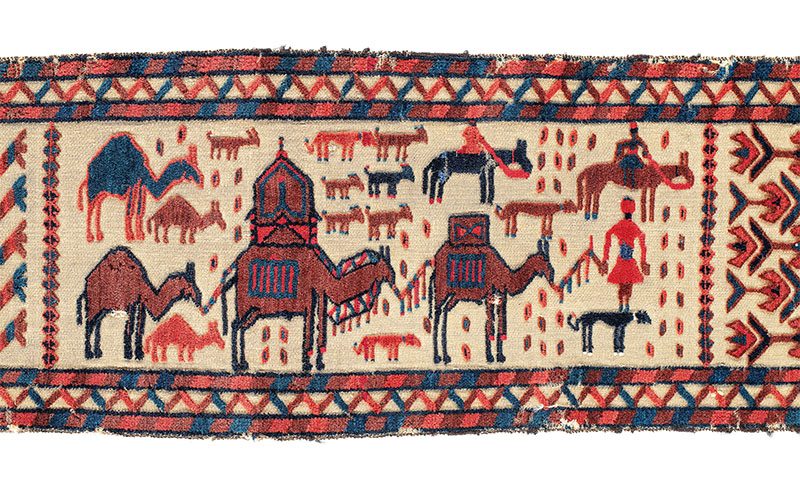
The Turkmen – A Carpet Collection from Schleswig-Holstein
On 9 April 2019, Dorotheum will auction nearly 140 Turkmen carpets and knot works from a private collection in Schleswig-Holstein. The carpet lover built his collection over multiple decades, focusing on rare and high-quality pieces, some of which are available for exhibition loans.
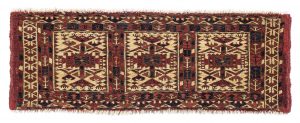
The Turkmen are nomads from Central Asia. To them, carpets carry a special meaning and are also called the “soul” of the people. These rugs reflect the traditions of the various tribes such as the Yomud, Tekke, Saryk, Salor and Ersari.
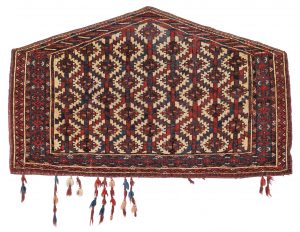
The Dorotheum auction will offer an Asmalyk from West Turkistan. This ornamental piece would have been made as part of a pair and used to decorate the flanks of a bride’s wedding camel. A magnificent Yomud tent band will also be up for auction(detail in the featured image). Bands of this quality were worked on for years and reflect the importance of one’s social standing at Turkmen weddings as it was used as the bride’s dowry. The Tekke used large capes to bundle and store delicate objects. This 23 x 67 cm piece is made in fine knotting, partly in silk.
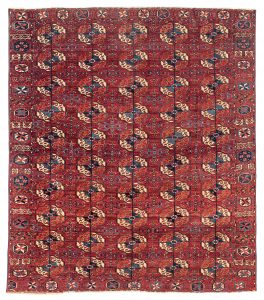
The auction highlight is a 17th century Tekke Khaly carpet which measures 226 x 200 cm. Such fine carpets were only unrolled on the tent floor during ceremonial occasions. Since it was not exposed to the damages of regular use, this piece is very well preserved. In terms of design and colour, Dorotheum specialist Wolfgang Matschek considers this to be one of the best surviving examples of this type of carpet.
Turkmen carpets are cultural goods, artistic objects and pieces of history. Knotted tapestries were used as decorative pieces for yurts, curtains or to frame tent entrances. Particularly fine works were made for bridal jewellery and to adorn camels. They also made practical items such as bags and containers. Their archaic designs stick to an impressive natural colour pallet of reds and browns. At the center of the patterns are the tribal markings known as Guls. Due to the isolation and remoteness of the Turkmen, their designs remained almost unchanged for centuries. These types of carpets have been extensively researched. Using colour analyses and radiocarbon dating, we can accurately estimate the age of these pieces.
INFORMATION ABOUT THE AUCTION:
Auction date: Tuesday, 9 April 2019, 4 PM
Viewing from: 3 April 2019
Venue: Palais Dorotheum, Vienna 1, Dorotheergasse 17
Specialist: Wolfgang Matschek, wolfgang.matschek@dorotheum.at

